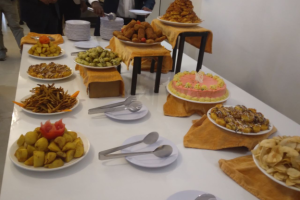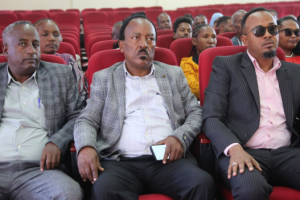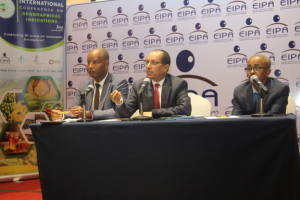
Ethiopia has prioritized the proliferation of higher educational institutions. As a result, many public and private higher education institutions have mushroomed across the nation to satisfy the education demand of the second populous nation in Africa.
The institutions are playing pivotal role in producing qualified and skilled human power which could transform the country in the political, economical and societal spheres However, since recent years, such institutions are becoming safe haven for those who want to orchestrate tribal conflicts for their diabolic political gains. Consequently, some students had been killed and the teaching and learning process has been disrupted due to the unrest that broke out in universities and colleges.
What happened in higher education institutions so far? What are the causes of disturbance in higher institutions? What should the government, teachers, community leaders and the public do to sustain peace and security in the institutions? Higher education institutions should renounce anti-change and antipeace elements who day and night strive to disrupt the radical change underway across the country. Anti-peace individuals target higher institutions to trigger conflicts.
The recent disturbance that broke out in Assosa University could be noted as a manifestation how these elements are trying their best to derail the ongoing change, Minister of Science and Higher Education, Dr.Hirut Woldemariam underlined in her press briefing lately. She noted that the Assosa University’s simple quarrel among students was deliberately blown out of proportion and diverted to tribal sentiments. As such students had fought each other.
As a consequence three students had breathed their last,while 34 of them sustained injuries. ‘‘Individuals who instigate conflict using ethnic sentiments to fuel simple disagreements are busy to disrupt the teaching and learning process and to pour a cold water on the remarkable change being witnessed over the last seven years. Hence, university communities and students should be forewarned of such subtle manipulations,’’ she insists.
Speaking to the Ethiopian Herald, Lecturer at Addis Ababa University, Institute of Peace and Security Studies, Dawit Mihretu consolidates the Minister’s idea that there are people with different political outlook and who are restless to disrupt the wind of change wafting across the nation. ‘‘Observably,universities represent the whole Ethiopia since they host students who come from different parts of the country. At this stage of transition, students would be easily manipulated by political groups using ethnic identity, history and culture as a smokescreen that instigate to dos.
Besides, the limitations in fully implementing the federalism system has been creating incongruity in different parts of the country. ‘‘Federalism is viable option for the Nations, Nationalities and Peoples of Ethiopia to live in unity and harmony. But society should know what federalism means. As university students are part of society, they should be equipped with the necessary knowledge of federalism.
They should understand our diversity is our beauty,’’ he states. He adds that education on federalism, constitution and rule of law should be started from the grass-root level. ‘‘Schools are the right places where generation are nurtured. Students spend most of their time there.
Accordingly, they should be taught about respecting one another, brotherhood and harmony. They have to know what the federalism system means and how it would benefit the spectrum of ethnic groups.’’ On the other hand, Higer Education Relevance and Quality Agency (HERQA), Deputy Director Tamrat Mota emphasizes on building the capacity of teachers in higher institutions.
‘‘Quality of educations could have an impact on the competence of students down the road. Ensuring quality education starts with enhancing the capacity of teachers who have colossal responsibility in shaping generation with humility and ethical personality. Mindfull of this fact, they should be empowered to share their knowledge confidently.
We are working on this regard,’’ he notes. However, Hidrom Araya, Sociology Lecturer at Mekelle Universities for his part stresses that improper use of social media and low political consciousness of its users have fomented ethnic based conflicts among university students.
‘‘In universities, there may be people who have hidden agendas and as such that goad students to come aboard heinous motives. But, if the students are forewarned of the booby traps, they will not be deceived easily,’’ he states. ‘‘The other factor that triggers conflict in higher institutions is inappropriate use of social media. Most students are unquestioning to the news being posted on Facebook and other social media.
Thus, they fall prey to fake news.’’ The lecturer points out that churning out a generation that believe in rational thinking and evidence would solve the problem of being deceived by fake news. ‘‘Civilized societies do not believe everything they heard or read. They ask themselves when, where, how the incident happened and they should check, balance and filter out the information they acquire.
They should take all what they hear and read with a grain of salt.. Regarding producing rational citizens, university communities, families and other pertinent bodies have irreplaceable role,’’ he emphasizes. To sum up, higher education institutions should be the center of knowledge, innovation and research.
They should not be hotbeds for political and ethnic based unrest. Hence, all pertinent stakeholders especially university communities have paramount role in leading students not to go awry. If so, the nation could produce skilled and amicable citizens who would contribute for its prosperity.
The Ethiopian Herald, January 2/2018
BY TSEGAY HAGOS





